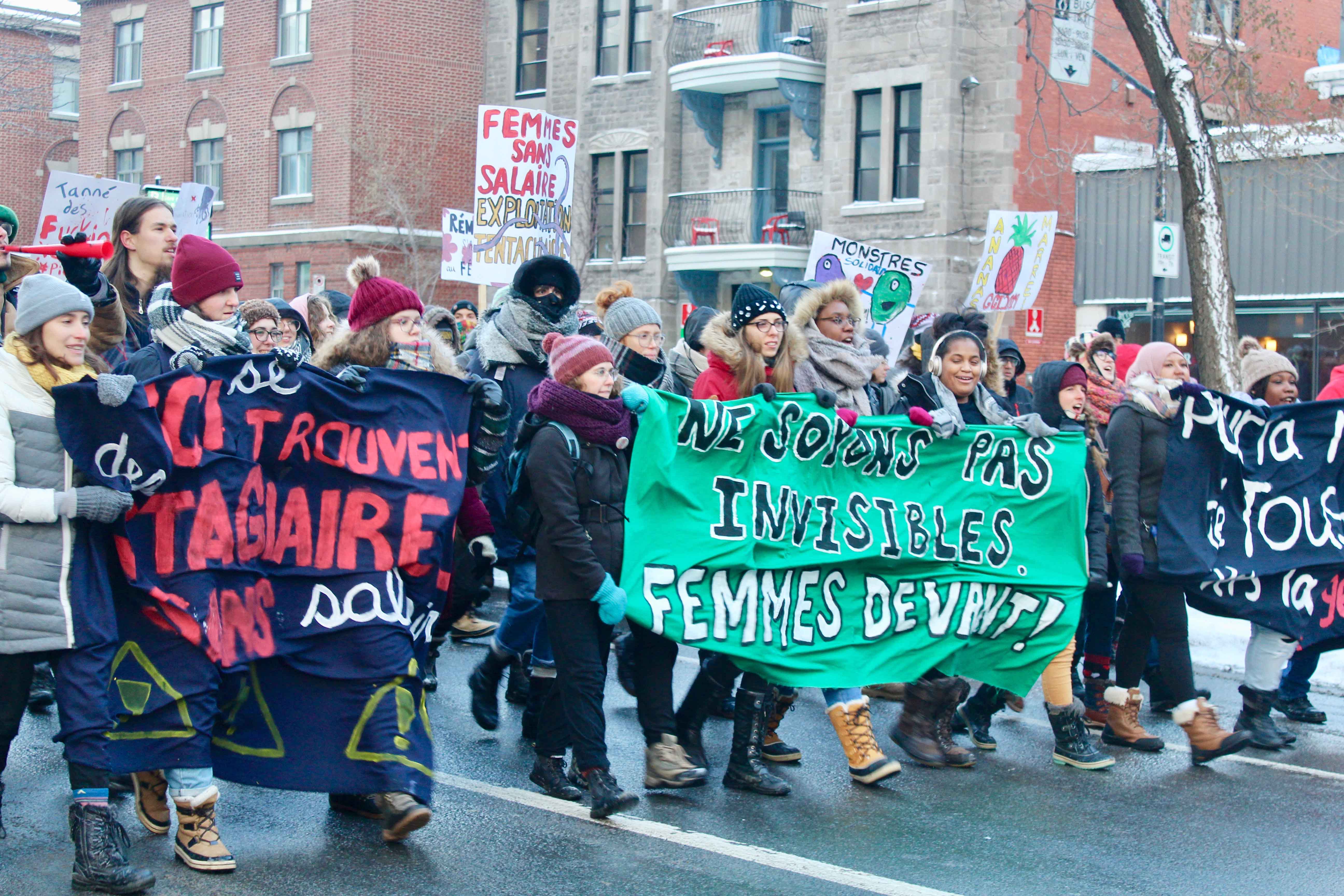From Nov. 19 to 23, students in McGill’s School of Social Work went on strike against unpaid internships. The strike was organized by the Social Work Students’ Association (SWSA), with participants standing in solidarity with similar efforts by Université de Québec à Montréal (UQAM), Université de Montréal, and 54,000 other social work students, rallying under a larger provincial-level protest led by the Comités unitaires sur le travail étudiant (CUTE).
The School of Social Work faculty voted unanimously on Nov. 14 to support the strike by cancelling classes for the duration of the week. However, an email sent by the School of Social Work Director Nico Trocmé and Dean of Arts Christopher Manfredi reminded faculty of their legal obligation to continue instruction as usual.
“Teaching faculty support the concerns of the students, but we do have a requirement to teach classes, both as part of our legal requirements and with respect to requirement [to provide instruction],” Trocmé said to The McGill Tribune. “Any student who requests class is entitled to have class.”
SWSA strikers joined CUTE strike participants at a demonstration on Nov. 21 on UQAM’s downtown campus, where students from across Montreal gathered to demand compensation for their field placements.
In an interview with the Tribune at the demonstration, Vincent Mousseau, U2 Arts in the School of Social Work and SWSA Internal Affairs coordinator, attested to a right for compensation for mandatory labour.
“We’re here protesting unpaid internships,” Mousseau said. “More specifically, the School of Social Work at McGill does 800 hours of unpaid internships without any remuneration. We think this is unfair.”
At McGill, the Bachelor of Social Work requires that students take, and, thus, pay for, 800 hours of field placement courses that are usually unpaid. Although unpaid internships are illegal in Quebec, the law makes an exception if they are part of a program approved by a university, college, or secondary school board. At McGill, Nursing and Education students are also required to complete unpaid field placements as a part of their degree.
Matthew Savage, U3 Arts in the School of Social Work and the strike coordinator for SWSA, sees unpaid internships as a problem that all students can unite against.
“I like to know that this isn’t just a Social Work fight,” Savage said. “This is a fight for Nursing and Education, and its about time that they get involved.”
Sandy Esvina, U1 Arts in the School of Social Work, believes that unpaid field placements are more common in female-dominated professions. She argues that students studying in male-dominated fields, such as engineering, are more likely to receive compensation for program-related work.
“Your grade depends on [unpaid internships], and people take advantage of that,” Esvina said. “Why are [social work students] not paid? This is really a feminist issue [….] We’re in 2018, women should be paid equally to men, and our work is just as valuable.”
Esvina believes that the labour of social workers as a whole, like many care-centred fields, is undervalued in popular opinion.
“I work in youth protection,” Esvina said. “So, when I’m going to go do my [internships], I’m going to be doing very vulnerable work because I’m teaching these kids to [reintegrate into] society [and] how to learn to trust again. I’m going to be helping [those people] and I think my work is valuable enough to be paid for it.”
Quebec Education Minister Jean-François Roberge called the social work protest ‘premature.’ In an interview with the CBC on Nov. 19, Roberge stated that he is in the process of studying and evaluating solutions for the issue of unpaid internships.








